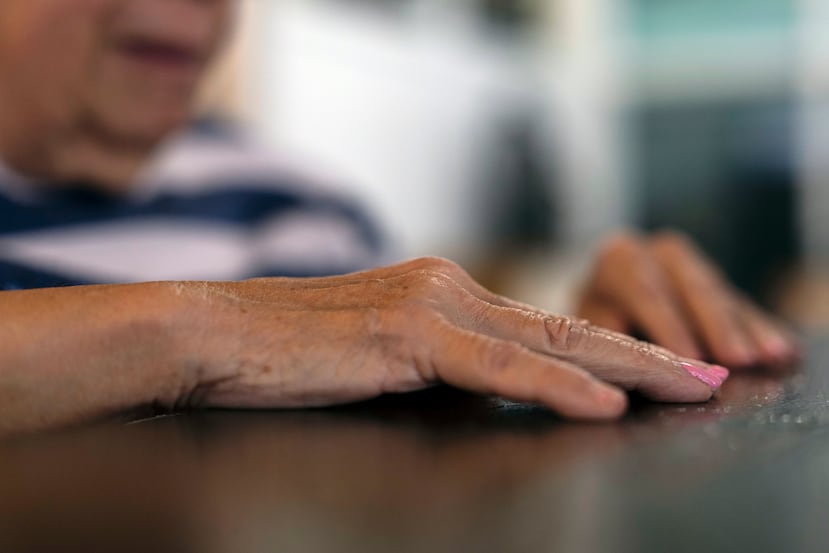

September 29, 2025 - 5:28 PM


As of August 18, the Department of Family has identified 110 long-term care homes operating with their license expired. Of that number, 99 were in the process of renewing their permit and the other 11 had not done the minimum paperwork to be in compliance.
On that date, the agency issued Administrative Order 2026-2, which granted a 90-day amnesty to encourage all elder care facilities operating without a license from the agency to begin or complete the licensing process, in compliance with minimum operational standards. That period ends on November 17.
“The care of the elderly population and the provision of permits to improve the quality of life are a high priority for us,” Department of the Family Secretary Suzanne Roig Fuertes told the House of Representatives Committee on Older Adults and Social Welfare on Monday.
The legislative body is evaluating House Resolution 258, which investigates the operation of long-term care facilities for the elderly without a permit. According to agency data, in Puerto Rico, there are 945 licensed facilities for these purposes, where 16,005 older adults reside.
The Department of the Family currently subsidizes the care of 6,632 senior citizens. The monthly allocation for this subsidy reaches $9.8 million, the official said. The government’s monthly contribution per participant fluctuates between $1,900 and $2,150, although the maximum is $2,350.
For the president of the Federation of Long-Term Care Institutions, Jonathan Morales Adorno, a facility that operates clandestinely, that is, one that has never registered with the Department of the Family, is not the same as one that offers services with an expired license.
For the family secretary, however, a clandestine center is “any home that operates outside the law. “It may have had it, it may have expired on the fly, if it does not have a valid license, it automatically becomes a clandestine home,” she said.
“We know that the centers are needed, but we also have to let the owners of these homes know that they have to be responsible with their license,” added, meanwhile, Representative Ricardo Ocasio Ramos, who presided over the work.
For Morales Adorno, there are several factors that contribute to the fact that there are centers operating outside the law, such as the “complex and costly” licensing process and the lack of proactive inspections by the Department of the Family.
To this, he said, is added the high demand for services due to the aging of the population, which causes “some to resort to quick solutions without complying with regulations”, and the absence of amnesties or subsidies for operators. The increase in the cost of some basic services -such as water and electricity-, he emphasized, represents a challenge for some owners.
As part of his presentation, Morales Adorno recommended strengthening the oversight process, developing orientation and accompaniment programs for people interested in establishing long-term care centers and creating education campaigns aimed at enabling families to identify unauthorized homes.
He also proposed classifying licensed homes as essential services and the development of subsidies or incentives. “The industry cannot do it alone, we need the support of the government,” Morales Adorno said.
For her part, Dr. Minera Gómez Ramos, president of the Association of Owners of Long-term Care Centers, said that the country has the necessary regulations to guarantee the health and safety of this sector of the population, but stressed that the government must ensure that “the rule of law is respected”.
“Licensed homes are subject to continuous inspections, strict regulations and protocols that are not optional,” said Gómez Ramos, whose organization represents 640 licensed facilities.
In this regard, the Secretary of the Family indicated that the law mandates quarterly inspections of each long-term facility. She acknowledged, however, that there are challenges in complying with this provision in the San Juan and Bayamón regions, where most of these facilities are located. In these regions, visits are made every four to six months, he said.
For homeowners, said Gómez Ramos, clandestine installations also represent unfair competition, since they offer reduced rates that do not reflect the real costs of a compliant service. He suggested, as a deterrent mechanism, that third-party providers be prohibited from offering services in an installation without a valid license.
“Non-compliance with the license is not an administrative detail, but the absence of minimum guarantees of life and dignity,” he asserted, adding that the closure of clandestine homes must be “immediate.”
Las noticias explicadas de forma sencilla y directa para entender lo más importante del día.


Te invitamos a descargar cualquiera de estos navegadores para ver nuestras noticias: